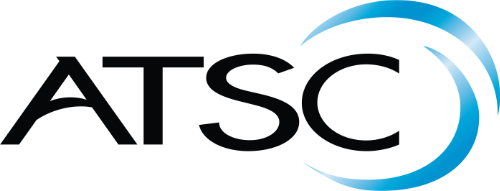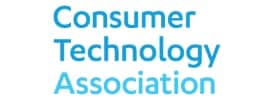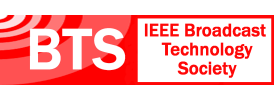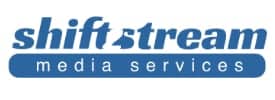- About
- Members
- Sponsors
- Subcommittees
- About Our Subcommittees
- Technology Group 3
- Implementation Team 1 – Advanced Emergency Information
- Implementation Team 2 – India
- Implementation Team 3 – ATSC 3.0 Conformance
- Implementation Team 4 – Brazil
- Implementation Team 5 – Tower Network
- Implementation Team 7 – Caribbean
- Implementation Team 8 – Automotive
- Planning Team 4 – Future Broadcast Ecosystem Technologies
- Planning Team 5 – Automotive Applications
- Planning Team 6 – Global Recognition of ATSC 3.0
- Planning Team 9 – Sustainability
- Technical Documents
- News
- Events
- Spotlight ATSC 3.0
- Contact Us
- Member Login
- Member Meetings
- Advanced Search
Search Site
Member Links
- About
- Members
- Sponsors
- Subcommittees
- About Our Subcommittees
- Technology Group 3
- Implementation Team 1 – Advanced Emergency Information
- Implementation Team 2 – India
- Implementation Team 3 – ATSC 3.0 Conformance
- Implementation Team 4 – Brazil
- Implementation Team 5 – Tower Network
- Implementation Team 7 – Caribbean
- Implementation Team 8 – Automotive
- Planning Team 4 – Future Broadcast Ecosystem Technologies
- Planning Team 5 – Automotive Applications
- Planning Team 6 – Global Recognition of ATSC 3.0
- Planning Team 9 – Sustainability
- Technical Documents
- News
- Events
- Spotlight ATSC 3.0
- Contact Us
- Member Login
- Member Meetings
- Advanced Search
SOMEONE YOU SHOULD KNOW: Bonnie Beeman
Posted on August 7, 2019 in ATSC News
 Many ATSC 3 watchers have heard of Bonnie Beeman or at least her company AirWavz.tv, a pioneer in Next Gen TV receiver innovations. She’s someone you should know…
Many ATSC 3 watchers have heard of Bonnie Beeman or at least her company AirWavz.tv, a pioneer in Next Gen TV receiver innovations. She’s someone you should know…
From her first job as a radio DJ at KITS Hot Hits in San Francisco in 1981, Bonnie Beeman’s “irrational passion for all wireless communications” had begun. Beeman has had a myriad of experiences, from teaching RF Engineers how to cut 1G and 2G live radios over to Cellular Digital Packet Data overnight in the ‘90s to her current job as CEO and founder of Airwavz.tv.
Beeman said an important moment in her career was the PocketNet launch party in New York. Beeman’s job was to teach engineers, sales people, lab techs, and executives how to program PocketNet, the very first phone with the ability to connect to the internet.
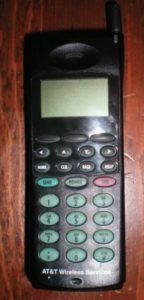 “We all take for granted today that all these apps are pre-programmed,” Beeman said via email, “But back in the day we had to manually configure every phone.”
“We all take for granted today that all these apps are pre-programmed,” Beeman said via email, “But back in the day we had to manually configure every phone.”
Beeman said the PocketNet launch party in New York was pivotal to the public’s awareness that cell phones were moving beyond voice-only to become intelligent computers.
“We all hoped we were on the brink of something huge,” Beeman said.
Beeman’s involvement with PocketNet was not her only involvement with groundbreaking technology, however.
In 2014 while in graduate school, she came up with a novel idea of a TV antenna smartphone accessory called “Quarterback” but said she needed to bounce the idea off a true technical TV expert. A friend from KOMO-TV in Seattle introduced her to Jay Adrick, who was working with the AWARN team. Besides providing invaluable help, Beeman said Adrick suggested she get involved in the ATSC 3.0 standards and Rich Chernock graciously welcomed her participation.
“I am truly impressed with the high level of professionalism, technical expertise and congeniality of everyone involved in ATSC 3.0,” Beeman said.
 Currently, she is actively working with the ATSC 3.0 Standards (primarily S32 and the SFN/STL Small Group), the CTA r4wg18 Standards for Receivers, ATSC Interest Group, and she is a member of the Angel Capital Association as an accredited investor in Airwavz.tv ATSC 3.0 technology.
Currently, she is actively working with the ATSC 3.0 Standards (primarily S32 and the SFN/STL Small Group), the CTA r4wg18 Standards for Receivers, ATSC Interest Group, and she is a member of the Angel Capital Association as an accredited investor in Airwavz.tv ATSC 3.0 technology.
Beeman said ATSC 3.0 will have “massive positive financial impact on the broadcast community, investors, and stakeholders alike.”
ATSC 3.0 TV transforms UHF and VHF spectrum into high speed, high capacity packet data networks available to everyone in the United States as an alternative to wireless.
By converting to ATSC 3.0, Beeman said, broadcasters will be able to offer everyday consumers a brand new national wireless packet data network that carries the most popular wireless data app today, which is high definition digital video.
When she’s not working, Beeman said she enjoys jogging and listening to anything by Sting as well as traveling, which she said is one of her lifelong pleasures.
“What I really enjoy about travel is being in a new place, surrounded by awesome people, in new environments,” Beeman said. “I’m not a big fan of the actual travel these days, unless it’s the accidental awesome upgrade to first class.”
A Corvette aficionado, on her bucket list of places she wants to visit include Seychelle Islands off the coast of Africa for scuba diving, the Galapagos Islands, the pyramids of Egypt, Israel, and the moon.
“The moon visit would be fascinating,” Beeman said, “But I’d need a map to find the Sea of Tranquility.”
Posted in ATSC News
News Categories
News Archives
Subscribe
Subscribe to The Standard, our monthly newsletter. Learn More
Join ATSC
ATSC is a membership organization with both voting and observer categories. Voting members include corporations, nonprofit organizations, and government entities, and they participate actively in the work of ATSC. Observers are individuals or entities not eligible to be a voting member.
Subscribe to our Newsletter
Subscribe to The Standard, our monthly newsletter, to stay up-to-date with ATSC news and events around the world.
Site Links
Contact Us
Advanced Television Systems Committee, Inc.
1300 I Street NW, Suite 400E
Washington, DC 20005
Do you have questions about ATSC?
About ATSC
The Advanced Television Systems Committee, Inc., is an international, non-profit organization developing voluntary standards and recommended practices for digital terrestrial broadcasting. ATSC member organizations represent the broadcast, broadcast equipment, motion picture, consumer electronics, computer, cable, satellite, and semiconductor industries. ATSC also develops digital terrestrial broadcasting implementation strategies and supports educational activities on ATSC standards.
© 2024 ATSC
